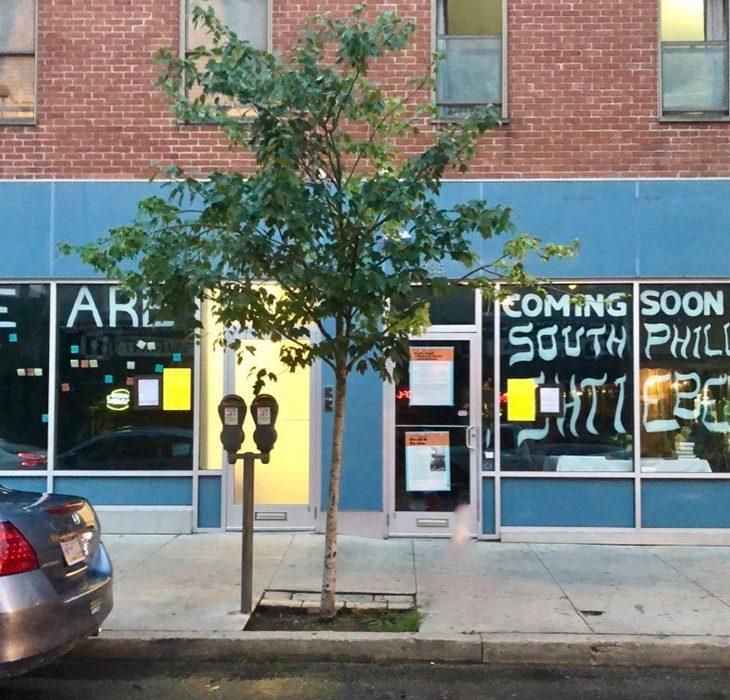Interfaith Ties ‘Bedrock’ in Community’s Strength
April 2, 2020

I had no idea what a shtiebel was. But the Covid-19 crisis in Philadelphia would teach me just how important it was to me – and how our interfaith community could serve in this time of need.
In the spring of 2019, I was walking around my neighborhood of South Philadelphia, strolling along East Passyunk Avenue. Fifty years ago or so, this street had served as a primary artery for one of the most bustling Italian and Jewish neighborhoods in the country—think characters from the first Rocky movie or from a quixotic Woody Allen flick. However, with the suburbanization of America starting after WWII, the city had fallen on hard times and those who could, moved out. In recent years, the neighborhood has resurged, first with immigrant communities to include Vietnamese, Indonesian, Mexican, Burmese, Bhutanese, and others, followed by young urban professionals and a growing Jewish population. The old street has come back alive as a foodie haven.
Looking up during my stroll, I noticed that where the Vespa motorcycle display room had recently been, there is now large, smudged Hebrew letters scrawled onto what used to be the display-room glass, complete with a paper in English announcing that a shtiebel was moving in. I had to look up the word: it seemed that a shtiebel was a small Jewish prayer site, something like a small synagogue. Rabbanit Dasi Fruchter was moving up from the Baltimore, Washington DC area. She was hoping to revitalize a Jewish presence in our neighborhood.
I was thrilled, since alongside my full-time role as a professor in social sciences and theology at Eastern University, I had recently become an interim pastor at St. John’s Baptist Church, about a block away. St. John’s had been a thriving center of Italian Baptist work for more than a hundred years, a key component that had long welcomed immigrant Italians who had arrived in Philadelphia seeking work, housing, friends, and spiritual direction. Recently, St. John’s had dwindled to almost nothing, so alongside my colleague Dr. Anthony Campolo from Eastern, we were seeking to revive St. John’s. I opened my phone and dialed Dasi and a week later we met for coffee, which led to many shared shabbat meals in her home to celebrate the Sabbath.
Additional strands came together in this interfaith community. I had spent close to twenty years in Indonesia working in grassroots development with my wife. After our return to the States, I became an elder in the Philadelphia Praise Center (PPC), an Indonesian Mennonite church. Just a year before we moved into the neighborhood, Aldo Siahaan – the pastor of PPC – had reached out to the Indonesian Muslim community to offer them worship space. Al-Falah Mosque had been searching for a location for worship and PPC stepped up in a very important way. While this caused some pastors in the area to be upset, it sealed PPC’s relationship with Al-Falah (even to this very day). PPC also had similar relationships with the local Roman Catholic Church, with Burmese Baptist Churches, with local Vietnamese community empowerment organizations, as well with others. Thus, the sinews of interfaith and intercultural work had been nurtured long before my family arrived, and our relationship with the shtiebel added to this dynamic scene.
This last week, as the threat and reality of Covid-19 has come rolling in, Aldo and I reached out to the shtiebel, the local Roman Catholic Church, a Latinx Mennonite Church, the Italian Baptists, to Al-Falah Mosque and to local African American Baptist churches. We arranged for a Zoom meeting where we could work toward three things:
This is a new, interfaith, intercultural endeavor that has just popped up and we will see how it goes. However, what must not be overlooked is that this new endeavor has been enabled by long-standing relationships and our willingness to cross borders and boundaries. Our community’s historical commitment to recognizing the value of one another as well as the contribution each can make is the firm ground upon which we stand, now that a crisis has erupted in our community.
I now know what a shtiebel is. I am hoping that all of us can help them take root here in South Philadelphia, even in the midst of the challenges we presently face together. Indeed, this interfaith community building is an essential bedrock to addressing our current needs.
Share
Related Articles
American Civic Life
American Civic Life
Eboo Patel and Wajahat Ali: Is “Interfaith America” Even Possible?
American Civic Life
Faith Based Efforts Work in Vaccine Uptake: Now Let’s Make it Easy



